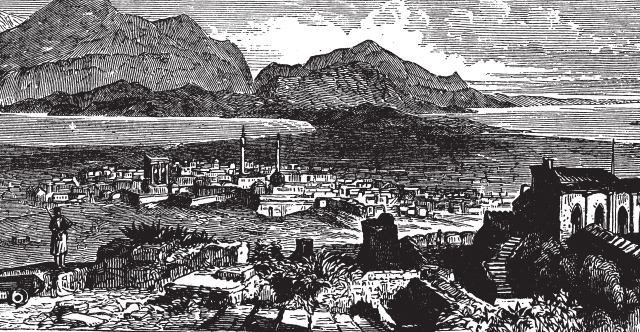
1
N
ow about food offered to idols: of course we know that all of us possess knowledge knowledge causes people to be puffed up (to bear themselves loftily and be proud), but love (affection and goodwill and benevolence) edifies and builds up and encourages one to grow.
Y POR lo que hace á lo sacrificado á los ídolos, sabemos que todos tenemos ciencia. La ciencia hincha, mas la caridad edifica.
2
I
f anyone imagines that he has come to know and understand much, he does not yet perceive and recognize and understand as strongly and clearly, nor has he become as intimately acquainted with anything as he ought or as is necessary.
Y si alguno se imagina que sabe algo, aun no sabe nada como debe saber.
3
B
ut if one loves God truly '> with affectionate reverence, prompt obedience, and grateful recognition of His blessing], he is known by God '> recognized as worthy of His intimacy and love, and he is owned by Him].
Mas si alguno ama á Dios, el tal es conocido de él.
4
I
n this matter, then, of eating food offered to idols, we know that an idol is nothing (has no real existence) and that there is no God but one.
Acerca, pues, de las viandas que son saacrificadas á los ídolos, sabemos que el ídolo nada es en el mundo, y que no hay más de un Dios.
5
F
or although there may be so-called gods, whether in heaven or on earth, as indeed there are many of them, both of gods and of lords and masters,
Porque aunque haya algunos que se llamen dioses, ó en el cielo, ó en la tierra (como hay muchos dioses y muchos señores),
6
Y
et for us there is one God, the Father, Who is the Source of all things and for Whom we, and one Lord, Jesus Christ, through and by Whom are all things and through and by Whom we.
Nosotros empero no tenemos más de un Dios, el Padre, del cual son todas las cosas, y nosotros en él: y un Señor Jesucristo, por el cual son todas las cosas, y nosotros por él.
7
N
evertheless, not all possess this knowledge. But some, through being all their lives until now accustomed to idols, still consider the food as that sacrificed to an god; and their weak consciences become defiled and injured if they eat.
Mas no en todos hay esta ciencia: porque algunos con conciencia del ídolo hasta aquí, comen como sacrificado á ídolos; y su conciencia, siendo flaca, es contaminada.
8
N
ow food will not cause our acceptance by God nor commend us to Him. Eating gives us no advantage; neither do we come short or become any worse if we do not eat.
Si bien la vianda no nos hace más aceptos á Dios: porque ni que comamos, seremos más ricos; ni que no comamos, seremos más pobres.
9
O
nly be careful that this power of choice (this permission and liberty to do as you please) which is yours, does not become a hindrance (cause of stumbling) to the weak or overscrupulous.
Mas mirad que esta vuestra libertad no sea tropezadero á los que son flacos.
10
F
or suppose someone sees you, a man having knowledge reclining at table in an idol’s temple, might he not be encouraged and emboldened if he is weak and uncertain, and eat what is for the purpose of idol worship?
Porque si te ve alguno, á ti que tienes ciencia, que estás sentado á la mesa en el lugar de los ídolos, ¿la conciencia de aquel que es flaco, no será adelantada á comer de lo sacrificado á los ídolos?
11
A
nd so by your enlightenment (your knowledge of spiritual things), this weak man is ruined (is lost and perishes)—the brother for whom Christ (the Messiah) died!
Y por tu ciencia se perderá el hermano flaco por el cual Cristo murió.
12
A
nd when you sin against your brethren in this way, wounding and damaging their weak conscience, you sin against Christ.
De esta manera, pues, pecando contra los hermanos, é hiriendo su flaca conciencia, contra Cristo pecáis.
13
T
herefore, if food is a cause of my brother’s falling or of hindering, I will not eat flesh forever, lest I cause my brother to be tripped up and fall and to be offended.
Por lo cual, si la comida es á mi hermano ocasión de caer, jamás comeré carne por no escandalizar á mi hermano.
 English
English
 Albanian - Shqip
Albanian - Shqip
 Arabic - العربية
Arabic - العربية
 Bulgarian - Български
Bulgarian - Български
 Chinese - 汉语
Chinese - 汉语
 English - English
English - English
 French - Français
French - Français
 German - Deutsch
German - Deutsch
 Italian - Italiano
Italian - Italiano
 Māori - Te Reo Māori
Māori - Te Reo Māori
 Portuguese - Português
Portuguese - Português
 Romanian - Română
Romanian - Română
 Russian - Русский
Russian - Русский
 Somali - Af Soomaali
Somali - Af Soomaali
 Spanish - Español
Spanish - Español
 Ukrainian - Українська
Ukrainian - Українська
 Vietnamese - Tiêng Viêt
Vietnamese - Tiêng Viêt
 Spanish
Spanish
 Albanian - Shqip
Albanian - Shqip
 Arabic - العربية
Arabic - العربية
 Bulgarian - Български
Bulgarian - Български
 Chinese - 汉语
Chinese - 汉语
 English - English
English - English
 French - Français
French - Français
 German - Deutsch
German - Deutsch
 Italian - Italiano
Italian - Italiano
 Māori - Te Reo Māori
Māori - Te Reo Māori
 Portuguese - Português
Portuguese - Português
 Romanian - Română
Romanian - Română
 Russian - Русский
Russian - Русский
 Somali - Af Soomaali
Somali - Af Soomaali
 Spanish - Español
Spanish - Español
 Ukrainian - Українська
Ukrainian - Українська
 Vietnamese - Tiêng Viêt
Vietnamese - Tiêng Viêt
